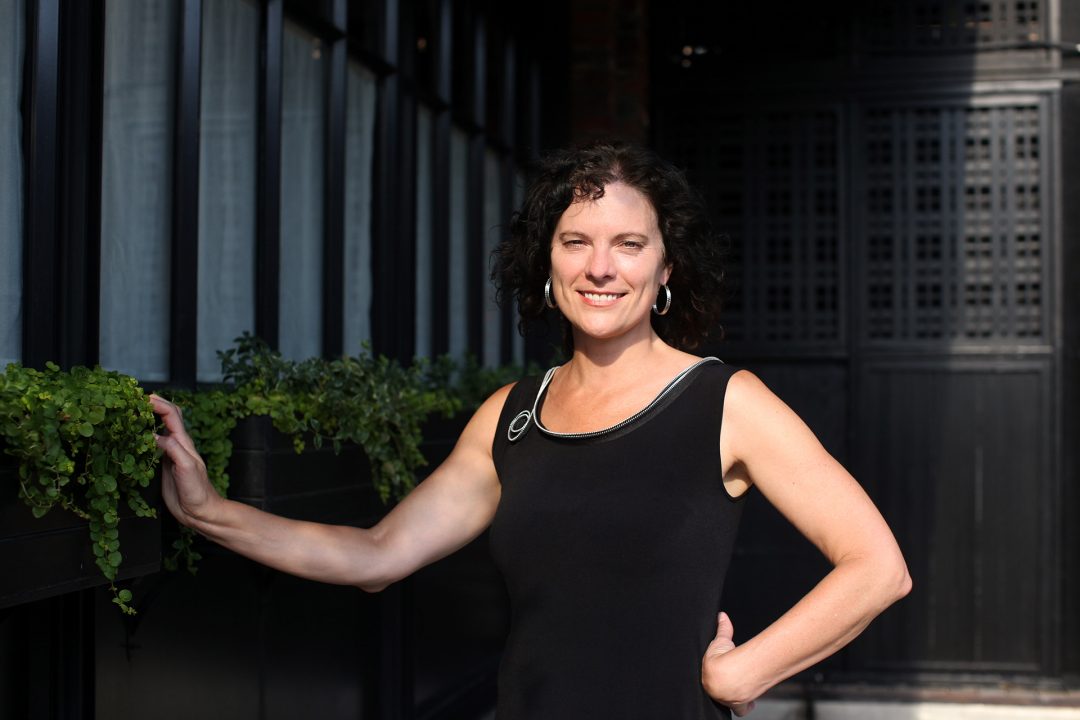 "When I was a Peace Corps Volunteer in the Philippines I was assigned to work together with a male Peace Corps Volunteer. At first the Filipino community would only listen to him. They would always ask him the questions first and they would be patient and try to derive meaning from what he was saying even though I spoke Waray, the local dialect, and better than he did. I realized the only way they were ever going to listen to me was if I spoke the language fluently - so I studied the dialect and once I could really speak their language, they took me seriously. The other Peace Corps Volunteer suddenly realized that I had really learned to speak Waray and wanted me to teach him. This experience made me realize that I had always been doing this, I had always been compensating in my life - working harder to be better prepared in order to be heard." Kara Kelty is the Manager for Candidate Ready Development at Leadership for Educational Equity.
"When I was a Peace Corps Volunteer in the Philippines I was assigned to work together with a male Peace Corps Volunteer. At first the Filipino community would only listen to him. They would always ask him the questions first and they would be patient and try to derive meaning from what he was saying even though I spoke Waray, the local dialect, and better than he did. I realized the only way they were ever going to listen to me was if I spoke the language fluently - so I studied the dialect and once I could really speak their language, they took me seriously. The other Peace Corps Volunteer suddenly realized that I had really learned to speak Waray and wanted me to teach him. This experience made me realize that I had always been doing this, I had always been compensating in my life - working harder to be better prepared in order to be heard." Kara Kelty is the Manager for Candidate Ready Development at Leadership for Educational Equity.
Dominga Lukas Castro
"When I was a teenager and studying to become a teacher I got pregnant and dropped out of school. At the time I thought my work and the rest of my life would be in the house and in the kitchen. But after participating in some community women's groups and raising three children with my husband, I decided to become a health promoter so I could earn my own money and go back to school. I earned Q300 which was enough to pay for my school materials and my uniform. I only had one uniform for all three years I was in school. I had to borrow money from my family so that I could buy the clothing I needed for my graduation. But I kept pushing myself toward my goals. It was hard but I just kept going. While raising 5 children, I became a teacher and now I am the Director of the School." - Dominga Lukas Castro is an educator and business owner in Huitan, Guatemala. She also gives literacy classes to her mother-in-law (yesterday's EVE) and older women in her community.
note: This project is dedicated to Dominga and you can read a longer version of her story on meandeve.com. It is the very first story published.
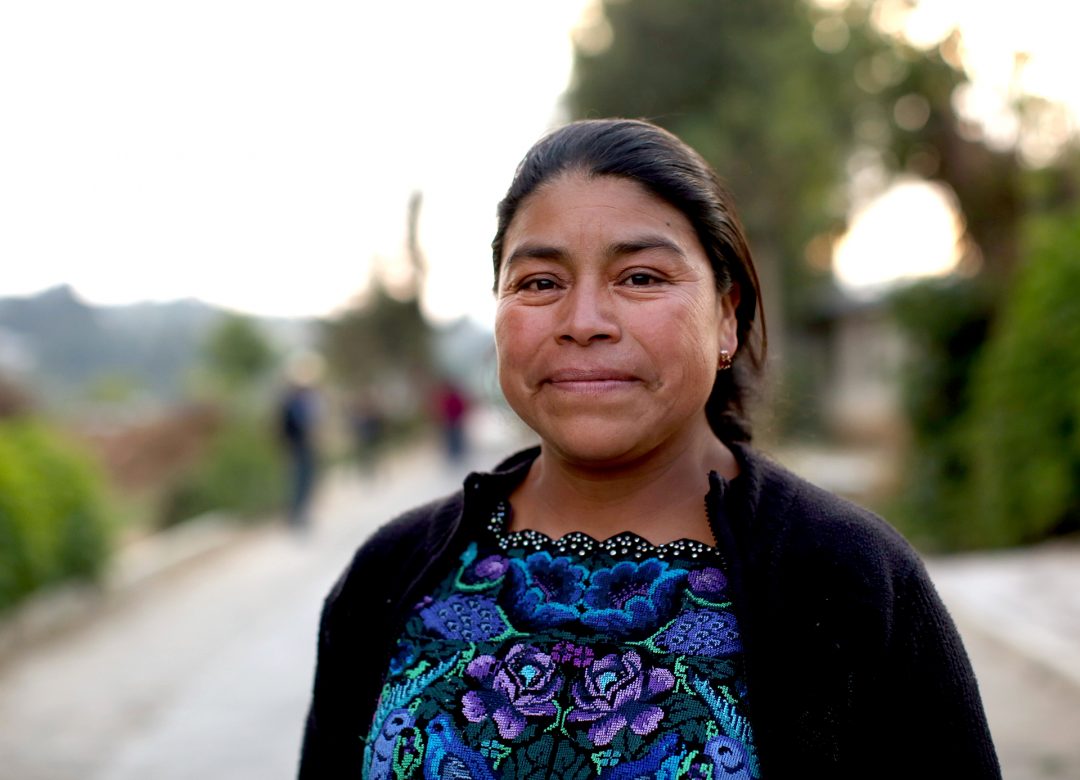
Juan Diaz Velasquez
"As a child I only attended school for two years. Back then the thought was, "Why send a girl to school when she only is going to wind up in the kitchen?" When I was 25 years old the Catholic Nuns came to my village and taught me the value of being a woman. The priest told us that men and women are equal. He said the only ones who say women aren't equal to men are men. The priest built the Colegio Asuncion here in Huitan so that the indigenous people here (the Mams) would be educated. All of my 10 children attended that school and 9 of them went on to become teachers. Now, I go to school every afternoon. My daughter-in-law, who is the director of the elementary school here, teaches a class for older women like me who didn't have the opportunity to go to school when we were young." - Dona Juana Diaz Velasquez lives in El Plan, Huitan, Guatemala and has been a community leader for many decades.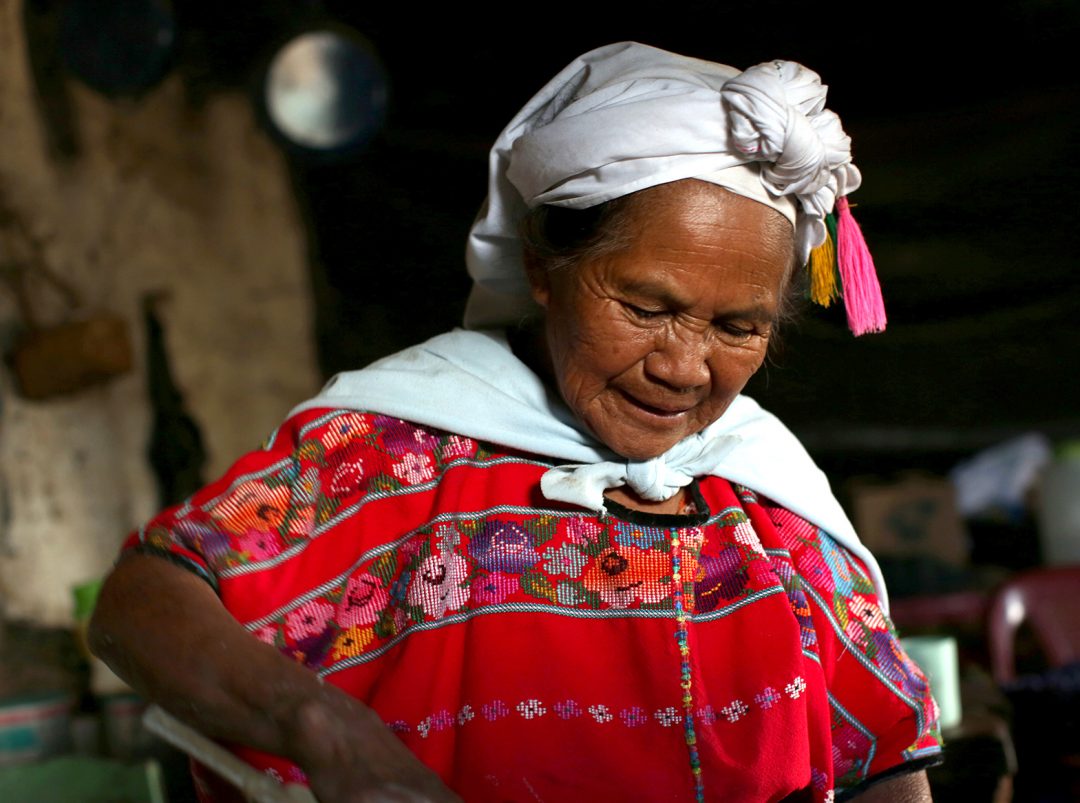
Graciela Cabrera
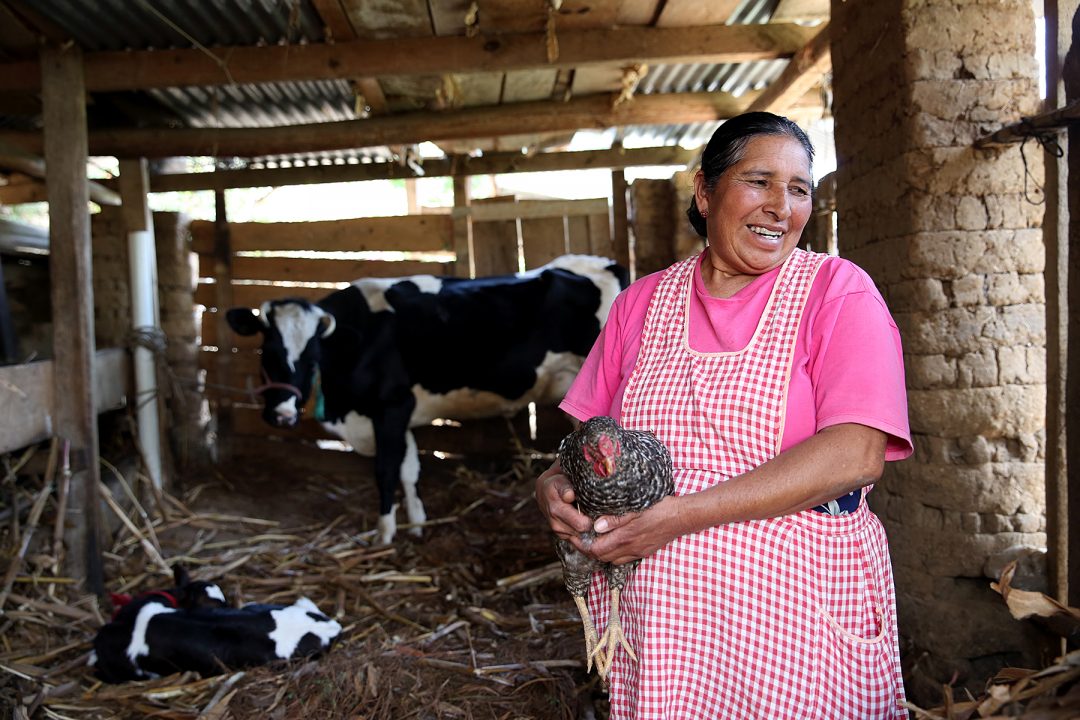 "I am enjoy my life. I am a mother, grandmother and in charge of taking care of the house. I have my animals and I enjoy all the blessings that God has given me. I am content and I feel happy to be living my life here in Xacana." - Graciela Cabrera lives in Xacana, Guatemala.
"I am enjoy my life. I am a mother, grandmother and in charge of taking care of the house. I have my animals and I enjoy all the blessings that God has given me. I am content and I feel happy to be living my life here in Xacana." - Graciela Cabrera lives in Xacana, Guatemala.
Susan Stine
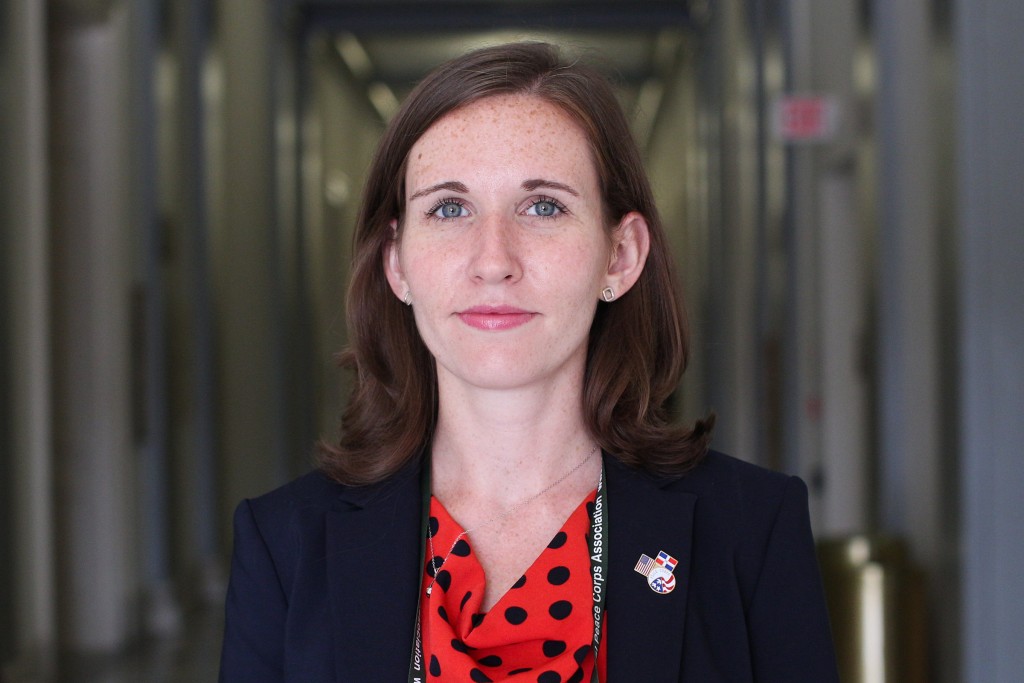 "Now when I go running I feel myself tensing up if I pass a bunch of male construction workers - just bracing myself for some rude comment. But really, I didn't become aware of gender discrimination until I served as a Peace Corps Volunteer in the Dominican Republic. It is a very machismo culture there and I couldn't go out at night by myself and really had to think about what clothes I wore on the street. To protect myself I learned how to avoid eye contact. When I came back to the United States I read Sheryl Sanberg's book Lean In and realized that women are viewed differently in the workplace." I also became aware that I wasn't making eye contact with men and had to unlearn the protective habit I had developed in the DR." - Susan Stine is a Returned Peace Corps volunteer and Programs Assistant at the InterAmerican Foundation.
"Now when I go running I feel myself tensing up if I pass a bunch of male construction workers - just bracing myself for some rude comment. But really, I didn't become aware of gender discrimination until I served as a Peace Corps Volunteer in the Dominican Republic. It is a very machismo culture there and I couldn't go out at night by myself and really had to think about what clothes I wore on the street. To protect myself I learned how to avoid eye contact. When I came back to the United States I read Sheryl Sanberg's book Lean In and realized that women are viewed differently in the workplace." I also became aware that I wasn't making eye contact with men and had to unlearn the protective habit I had developed in the DR." - Susan Stine is a Returned Peace Corps volunteer and Programs Assistant at the InterAmerican Foundation.
Kelsey Weber
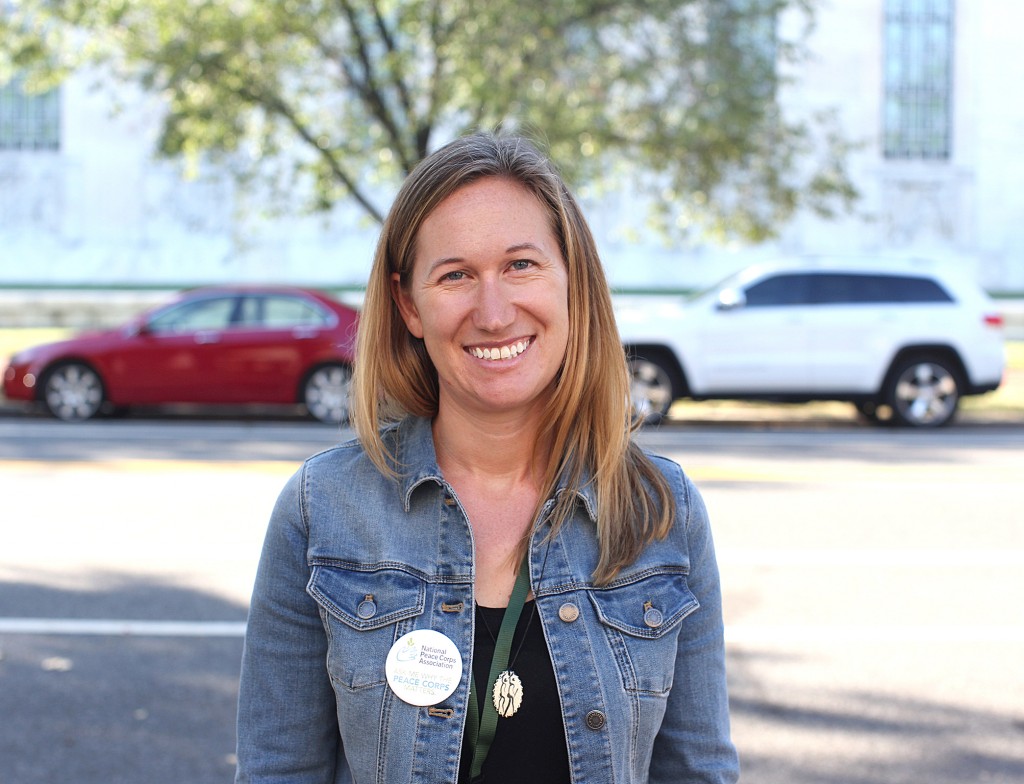 "Because I'm a woman I was able to be part of the sisterhood in Senegal. It's a Muslim country and outside the home the women are mostly reserved, but I had the opportunity to be with them at home, in kitchens and in front of the Mosque. This way I was included in the daily ongoings and the conversations about their lives. " - Kelsey Weber is a recently returned Peace Corps Volunteer who is studying to earn a Masters in Global Human Development at Georgetown University.
"Because I'm a woman I was able to be part of the sisterhood in Senegal. It's a Muslim country and outside the home the women are mostly reserved, but I had the opportunity to be with them at home, in kitchens and in front of the Mosque. This way I was included in the daily ongoings and the conversations about their lives. " - Kelsey Weber is a recently returned Peace Corps Volunteer who is studying to earn a Masters in Global Human Development at Georgetown University.
Angie Harris
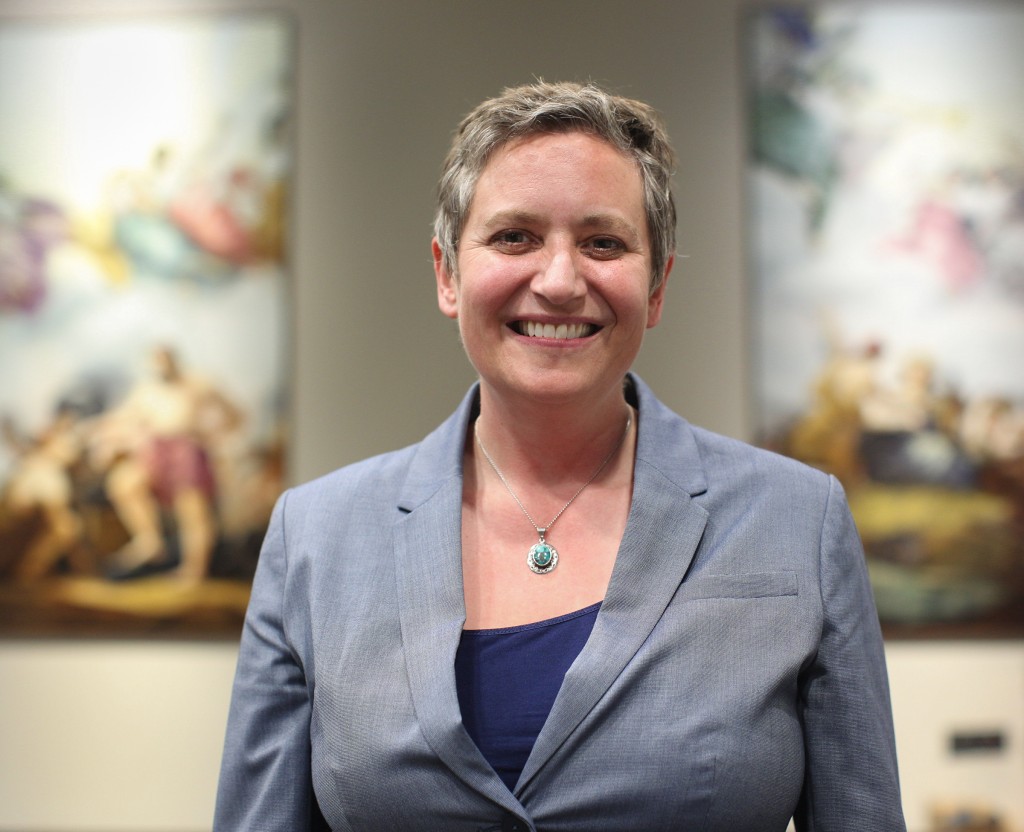 "I think the reason I've worked with international and refugee populations is partly because I am gay, and understood what it was like to live on the edges of society. In Peace Corps and afterward I was an ESL teacher and helped refugees build confidence by teaching them English so they could be heard and understood." - Angie Harris is the Director of International Programs at The Dollywood Foundation.
"I think the reason I've worked with international and refugee populations is partly because I am gay, and understood what it was like to live on the edges of society. In Peace Corps and afterward I was an ESL teacher and helped refugees build confidence by teaching them English so they could be heard and understood." - Angie Harris is the Director of International Programs at The Dollywood Foundation.
Rosemary Straley
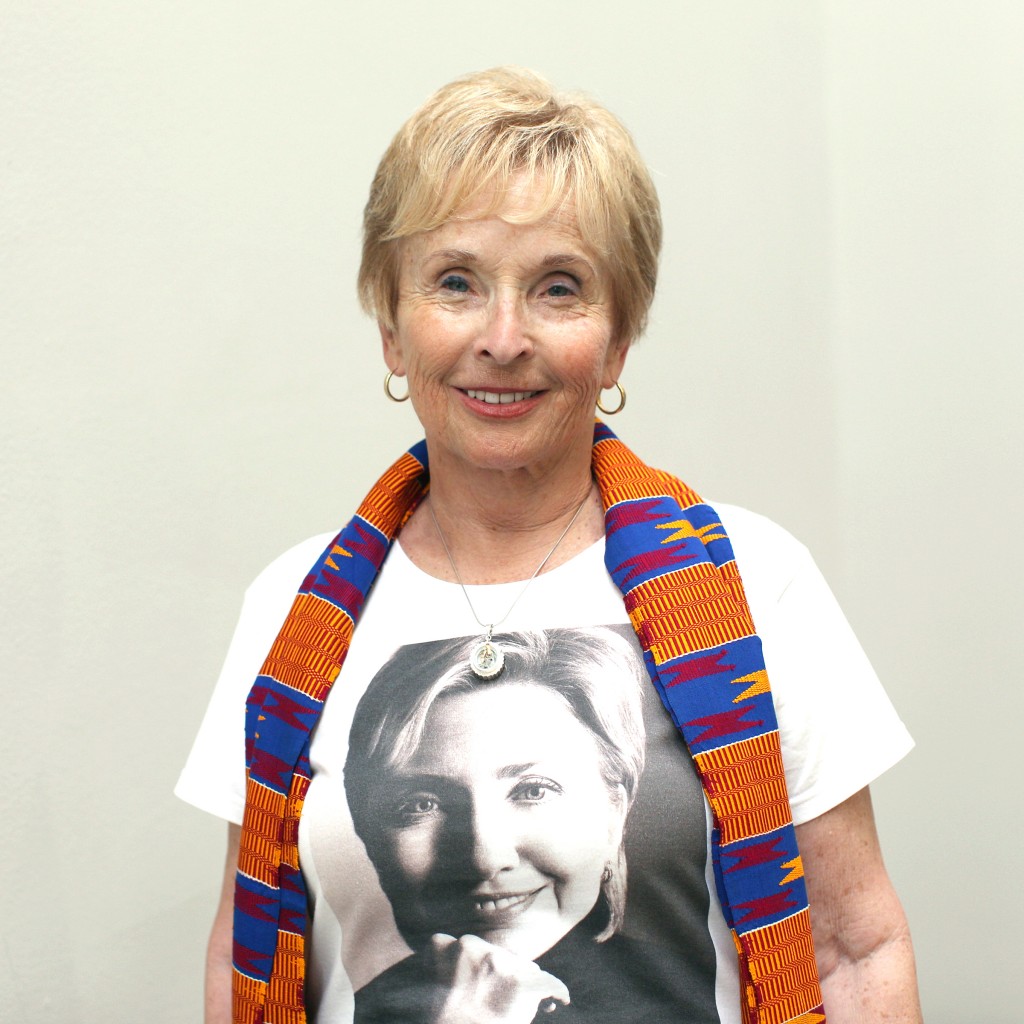 "Young women have no idea how hard women of my generation had to work to break into so many fields. After earning my Ph.D. at Harvard, the 14 other students in my class, all of whom were men went into Government Jobs at a GS14. At my State Department Job in the Government Accountability office I was told, "There are no women at GS14." and was demoted to a GS13. A year later they said, "You have now been promoted to a GS14." And I said, "No. I was always a GS14 now you finally re-instated me." - Rosemary Staley is a former State Department Officer, Peace Corps Country Director in Cameroon, Returned Peace Corps Volunteer and the National Coordinator of the Hillary Support Network.
"Young women have no idea how hard women of my generation had to work to break into so many fields. After earning my Ph.D. at Harvard, the 14 other students in my class, all of whom were men went into Government Jobs at a GS14. At my State Department Job in the Government Accountability office I was told, "There are no women at GS14." and was demoted to a GS13. A year later they said, "You have now been promoted to a GS14." And I said, "No. I was always a GS14 now you finally re-instated me." - Rosemary Staley is a former State Department Officer, Peace Corps Country Director in Cameroon, Returned Peace Corps Volunteer and the National Coordinator of the Hillary Support Network.
Judy Gabbie
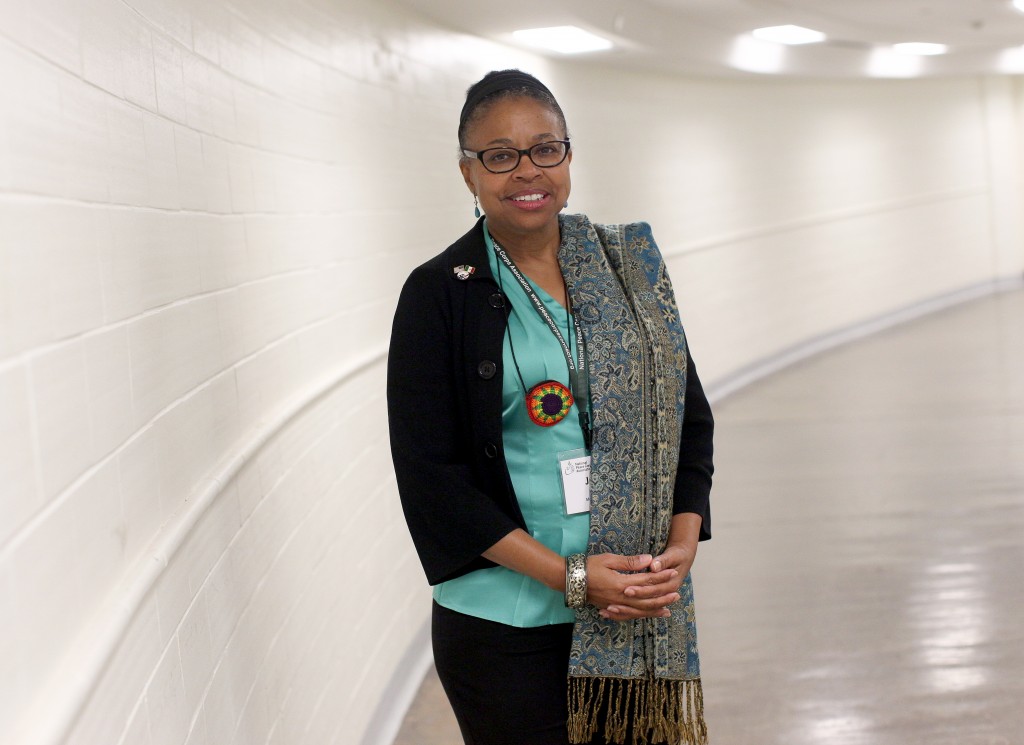 "My mother, because she was lighter skinned, managed to buy a house in an all-white neighborhood in Indiana - she wanted me and my sisters to integrate into the white schools. On the night of our house warming party our neighbors, who turned out to be Klan members and not the brightest people, burned a cross into their own yard and nearly lit both of our houses on fire. My teachers said that "Negro" students weren't smart. My mother, like Michelle Obama, taught us, "When they go low, we go high". Then I won the 6th grade Math contest. Oh they hated that and hated that I went to Harvard. If we weren't an all female household I think they would have killed us." - Judy Gabbie just returned from serving in the Peace Corps in Mexico.
"My mother, because she was lighter skinned, managed to buy a house in an all-white neighborhood in Indiana - she wanted me and my sisters to integrate into the white schools. On the night of our house warming party our neighbors, who turned out to be Klan members and not the brightest people, burned a cross into their own yard and nearly lit both of our houses on fire. My teachers said that "Negro" students weren't smart. My mother, like Michelle Obama, taught us, "When they go low, we go high". Then I won the 6th grade Math contest. Oh they hated that and hated that I went to Harvard. If we weren't an all female household I think they would have killed us." - Judy Gabbie just returned from serving in the Peace Corps in Mexico.
Dominga Castro Lucas
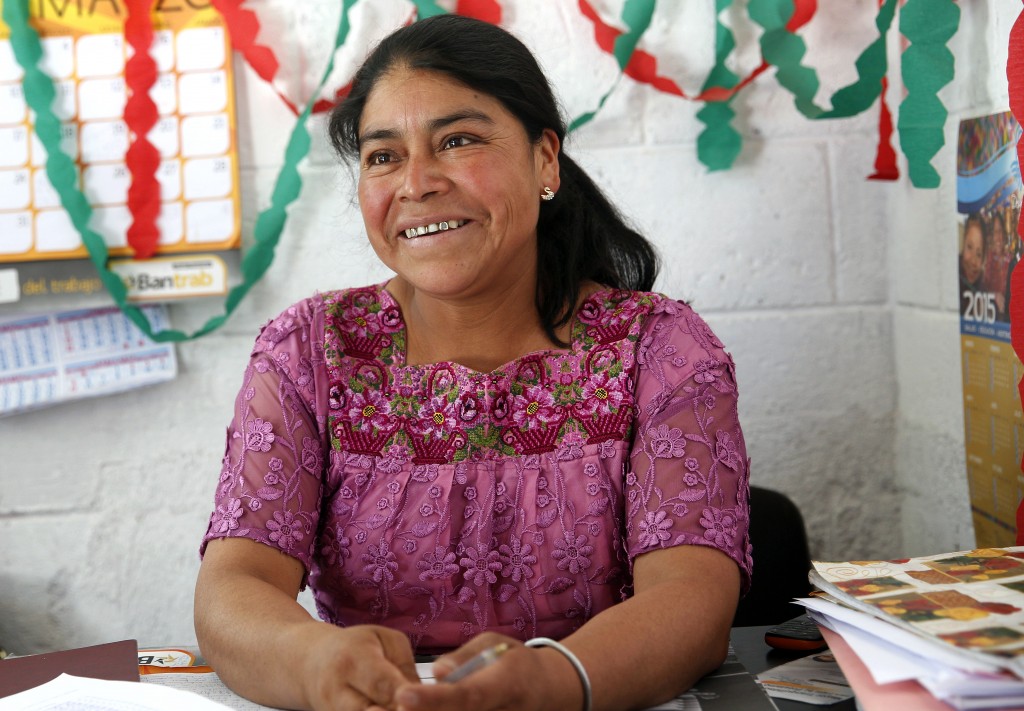 When Dominga was 18 she and her boyfriend were both studying to become teachers. Her boyfriend became a teacher while Dominga became pregnant. In the Highlands of Guatemala when a woman becomes pregnant her education is over, if it wasn't over already.
When Dominga was 18 she and her boyfriend were both studying to become teachers. Her boyfriend became a teacher while Dominga became pregnant. In the Highlands of Guatemala when a woman becomes pregnant her education is over, if it wasn't over already.
I met Dominga in 1993 she was nearly 20 years old and I was a 25 year old Peace Corps Volunteer. She was vibrant, smart, funny and beautiful. She taught me how to speak a few words in Mam and how to bathe in a Chuj (a sweat lodge used for weekly bathing). I taught her how to make apple pie. I urged her to go back to school, that is wasn't too late. And then two years later, my stint in the Peace Corps was over and we returned to the United States and Dominga was pregnant again.
Then in 1999, I sat in her one room house that had plastic for windows and talked about life while she nursed her third baby. Her husband was drinking and beating her and she needed help. She had never asked me for money before, but that day she asked for $100 so she could buy a propane stove. I thought, "How is a stove going to help?"
In March I returned to Guatemala. Dominga's mother-in-law told us she was at the elementary school. I found her in an office, her office. Dominga was now the Director of the elementary school.
With $100 Dominga bought a stove and cooked faster in the morning and then could heat up the food in the evening. This gave her the time to go to school in the afternoons. When she graduated the government assigned her to a school that took hours to walk to. Her second year she protested. She insisted that a mother of 4 children should be able to teach closer to home. She got a position teaching in the school closest to her home and after 8 years of teaching she became the director of a brand new school even closer to her house.
She said she went back to school because I encouraged her and that kept her going. I asked her, "Why did you listen to me?" She said, "Because you were the only one who believed in me. You were the only one who acknowledged that I could learn more, do more and reach my goals."
Dominga knew what she needed - a propane stove to free her from the long hours of cooking over a wood stove and an open fire. There is of course the saying, "Give a man a fish and he eats for one day. Teach a man to fish and he is set for life." I think there should be a different saying for women. "Listen to a woman and give her what she needs and then stand back and watch it happen."